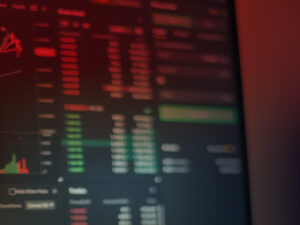Introduction
Commodity trading has always had a difficult relationship with sustainability and environmental protection. With COP26 now concluded, there continues to remain an opportunity for the commodity markets to find a key role in this ever-growing challenge. The increasing demands of new and existing markets has driven the need for cheaper and more readily accessible commodities. At Sinara, we are seeing more of our clients having to demonstrate their ESG (Environmental, Social and Governance) credentials to investors and the wider market, and this is driving changes to technology and the demand for new software systems to improve transparency. On a more day-to-day level, care for the environment is also a key part of our ethos at Sinara, demonstrated by a commitment to the use of renewable energy and a culture of recycling and reduction of waste.
Responsible sourcing of metals
It was with some curiosity therefore that I approached the LME’s Sustainability Morning back in October. Whilst I was keen to examine industry wide plans and promises, it was evident that action had to be the order of the day. In their own words, the LME states that exchanges can ‘act as catalysts of sustainable development’. They demonstrated the clear and compelling case for the responsible sourcing of metals and the soft market pressures and commercial imperatives that can be applied to producers to ensure standards are met concerning human rights, governance, transparency, and the environment. This was demonstrated in more tangible terms through the implementation of LMEpassport. In particular, the emphasis on low carbon production of metals, particularly the use of inert anode technology, and the voluntary disclosure of information regarding this confirmed the LME’s commitment to not only limiting their own carbon footprint but promoting a low carbon attitude throughout the trading lifecycle. By pioneering this approach, which was not without risk, the LME has set a precedent for the metals market.
Transition to renewable energy
Yet sustainable sourcing was not the only concern. With the growing decarbonisation of economies and increasing transition to renewable energy comes new challenges in metal trading. As new technologies appear and develop, new strains are placed on the sourcing of the requisite materials to sustain growth and commercial viability. Lithium, for example, is a vital material in the production of lithium-ion batteries which are required for the creation of electric vehicles (EV). The BloombergNEF boasts promising figures for the steady growth of the EV market, with an expected 80% jump in sales in 2021 to 5.6 million units. This, paired with the decreasing cost of lithium-ion batteries (studies put the price reduction at more than 97% since 1991), means lithium supply will no doubt be challenged and exchanges can be at the forefront of this rising challenge. In this regard, the LME’s commitment to providing new contracts for the access and trade of lithium promises the increasing availability and access to the core components of EV batteries and hopefully an increasingly dynamic approach to the material demands of the renewable energy sector.
Recycling and reuse
Just as important as the sourcing of material is the commitment to recycling and reuse of metals. The cyclical economies outlined during the session provided an intriguing approach to the reuse of metals, spearheaded by both the environmental and business case for its implementation and integration into exchanges. With an emphasis on aluminium, discussion focussed on the issuing of contracts for recycled material to be traded alongside it’s extracted counterpart, particularly in aluminium can production. Around 75% of all aluminium is still in active use. Further recycling, as opposed to fresh extraction and processing, could reduce the aluminium industry emissions by 20%. With the introduction of ever more extracted material into use comes the increased availability of metal to recycle and so a commitment to recycled metals contracts, especially those that prove cheaper than their extracted counterparts, could prove an exciting opportunity.
Conclusion
With members attending across the entire industry, the LME Sustainability Morning demonstrated the overwhelming commitment of the entire supply chain and market to sustainability and the changing dynamics of supply in line with environmental and ethical imperatives. With key focusses on the sustainable sourcing of metal, the increasing utilisation of lithium, especially in EV, and the importance of recycling and circular economies in fulfilling supply chain challenges, the session offered a promising insight into the future of sustainability in commodities exchanges. No doubt this progress will be monitored with keen interest.



